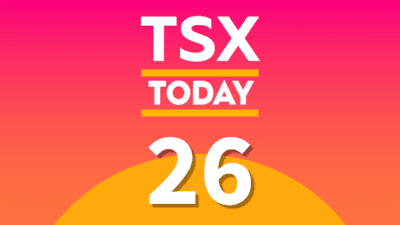Normally, weak crude is considered to be a powerful tailwind for economic growth as petroleum in its various forms is an important part of modern economic activity. Nonetheless, no matter how counterintuitive it may appear, weak oil prices are hurting the global economy, making it quite possible that the next global economic meltdown could be triggered by the collapse in crude.
Now what?
You see, a number of oil-rich developed and emerging economies are heavily dependent upon the extraction and exportation of crude as a driver of economic growth. The sharp collapse in the price of crude has triggered a range of economic maladies in these countries.
Canada has suffered considerably because of weak crude. Not only has economic growth slowed, but the value of the loonie has collapsed, and this is because crude is responsible for generating 6% of Canada’s GDP and 27% of the total value of its exports.
This phenomenon is not only restricted to Canada. It is having a far deeper impact on oil-dependent emerging markets that lack the economic strength and diversity of Canada, causing them to experience considerable declines in economic growth.
Brazil is the world’s eighth-largest economy. Crude is responsible for generating 13% of its GDP, so it has slipped into a protracted economic slump since oil prices collapsed.
Colombia is another rapidly developing Latin American nation that is heavily dependent on crude to drive economic growth. Its oil industry is responsible for 7% of its GDP and 49% of its total exports by value. While it has managed to avoid a deep economic slump, growth has slowed and there has been a sharp uptick in inflation thanks to the significant devaluation of the Colombian peso.
Then you have the petro economies of Nigeria and Venezuela, where oil is the single largest export and driver of economic growth. Both are struggling in the current environment. The seriousness of the situation for Venezuela is underscored by concerns that it may not only default on its government debt, but could be facing complete economic collapse.
Meanwhile, Russia–the world’s eleventh-largest economy and largest producer of crude–is feeling the pinch with Moscow heavily dependent on crude as a key source of GDP.
It is unlikely that the situation for these and other oil-dependent emerging economies will change any time soon. The governments of these countries are being forced to slash spending thanks to their dependency on oil revenues, and this is only causing economic growth to slow further.
With the IMF estimating that emerging economies are now responsible for 57% of global GDP–14% more than they were in 2004–there is a distinct possibility that any further disruption to these economies could have a catastrophic impact on the global economy.
So what?
This is certainly not good news for a world economy that is still struggling to emerge from the global financial crisis and is now experiencing a distinct disconnect between asset prices and economic reality. Canadian companies that are dependent on emerging markets will be hit the hardest.
This includes Bank of Nova Scotia (TSX:BNS)(NYSE:BNS), which derives over a fifth of its net income from Latin America and has increased its exposure to consumer lending in the region. Another is Manulife Financial Corp. (TSX:MFC)(NYSE:MFC), which has aggressively expanded into Asia with exposure to Hong Kong and Indonesia.







